- Home
- Enterprise
- Data Center
- The 50 Most Powerful People In Enterprise Tech
The 50 Most Powerful People In Enterprise Tech
Oracle's Larry Ellison: Perpetually on top.

Microsoft's Steve Ballmer: Navigating the iconic company through rough waters.
Steve Ballmer, CEO, Microsoft.
Ballmer has given Microsoft a no-holds-barred makeover, including getting into the PC business with Surface, launching a radically different version of Windows, and revamping its software for the cloud.
While some of these plans have been off to a rocky start, particularly Windows 8 and Surface, Ballmer's got his eye on Microsoft's long-term future. Enterprises are still likely to slowly buy into his vision.
Cisco's John Chambers: Setting his sights on IBM and HP.
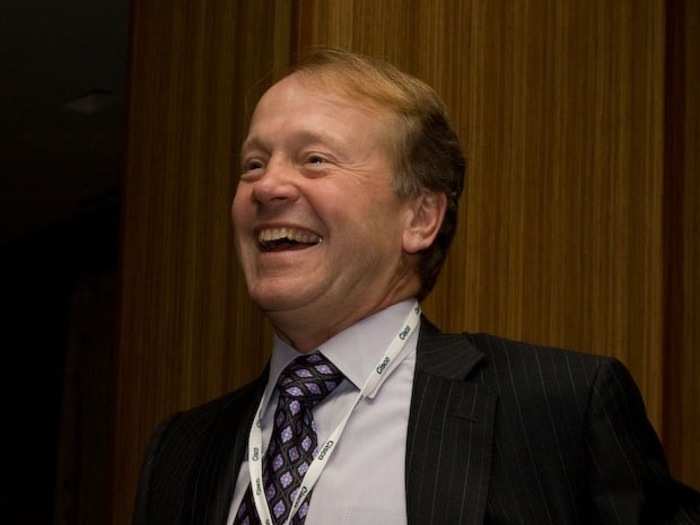
John Chambers, chairman and CEO, Cisco.
Chambers has been CEO of Cisco Systems since 1995. Although he's been talking about his retirement more now than he ever has, he's still running the company with all his might. He's trying to navigate Cisco past its roots as a network equipment company becoming a bigger IT company that competes with IBM and HP.
He needs to succeed because new technologies called software-defined networking threaten the way networks will be built and Cisco's stronghold on that market.
EMC's Joe Tucci: Big ambitions with no signs of slowing down.
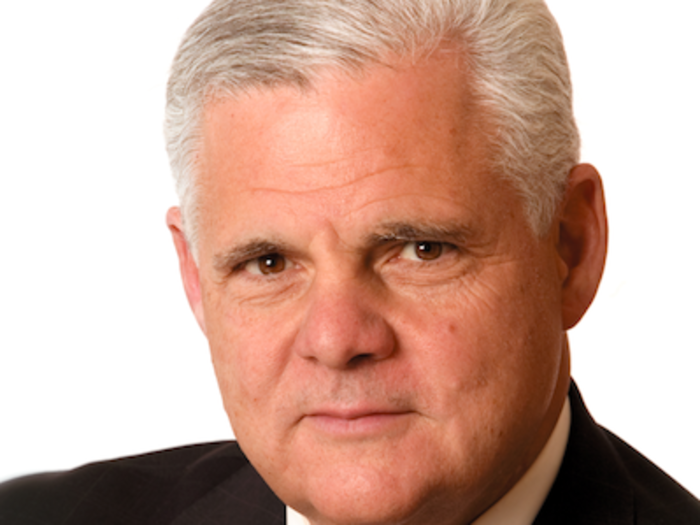
Joe Tucci, CEO, EMC.
Now that Tucci has made it clear that he's not retiring anytime soon, he's free to keep building EMC into a mega-enterprise powerhouse. EMC is already the biggest player in the enterprise storage market. Under Tucci, EMC hopes to become a cloud computing powerhouse, too, with help from the past and present CEOs of EMC subsidiary VMware: Paul Maritz, and Pat Gelsinger.
Linux Foundation's Linus Torvalds: Software pioneer.

Linus Torvalds, creator of Linux, fellow at the Linux Foundation.
Torvalds is renowned as one of the most brilliant software developers in the software world today. The operating system he created — and the open source method he helped pioneer — changed software forever. Torvalds remains at the center of it all and he's become a rock-star-like figure in the open source world.
Dell's Michael Dell: Taking back his company to take on the enterprise.
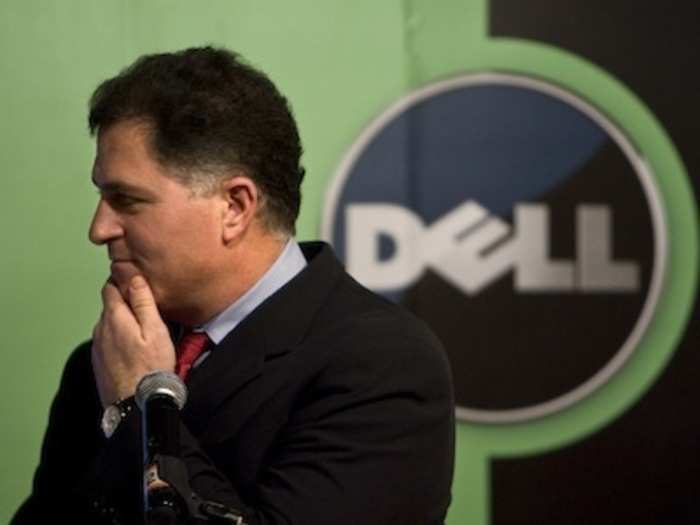
Michael Dell, founder and CEO of Dell.
Michael Dell is locked into a war with some of his shareholders to let him buy back his company and take it private.
Dell has big plans for a post-PC company that is focused on enterprise tech. He wants to build it outside the quarter-to-quarter scrutiny of the public markets. He's also making acquisitions big and small to make it happen.
Google's Sundar Pichai: Scaring Microsoft.
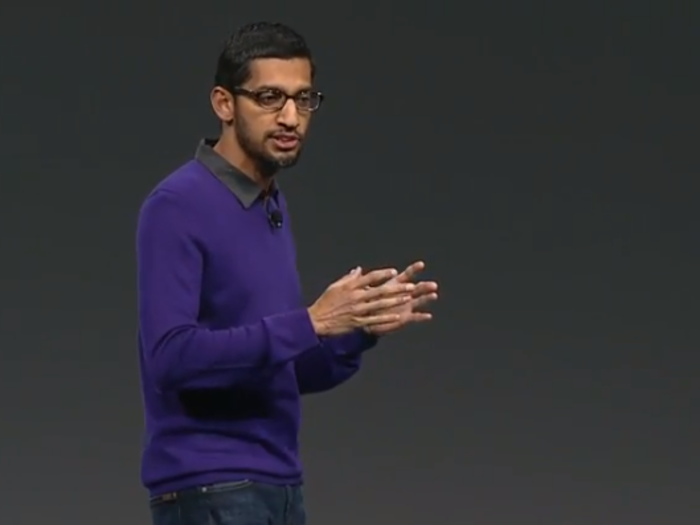
Sundar Pichai, Senior Vice President, Chrome and Apps, Google.
Google’s Chrome browser and Chrome OS operating system are major parts of Google's enterprise ambitions, and they fall under Pichai's wing.
He gained more power after the sudden departure of Andy Rubin. Pichai was handed the Android unit, too. He oversees product management and engineering and is also responsible for Google products such as Gmail, Google Drive, and Google Apps.
Workday's Dave Duffield: A legend and an upstart.
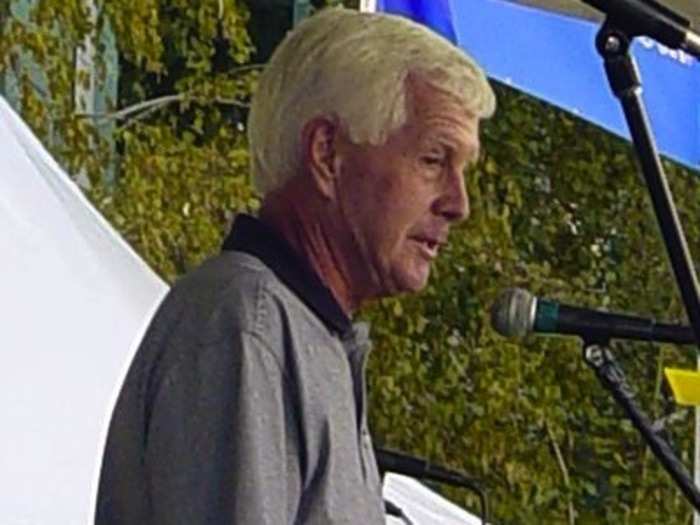
Dave Duffield, co-founder, co-CEO, Workday.
Duffield is the major visionary behind Workday, a cloud-based human resources app that has set the enterprise software world on fire and put Oracle on notice. Duffield has been launching successful companies for decades. He previously founded PeopleSoft in 1987 and led it until it was acquired by Oracle in 2005 via a hostile takeover.
Then he turned around and thumbed his nose at Larry Ellison, launched Workday and just took it public late last year.
Box's Aaron Levie: Everyone's watching him.
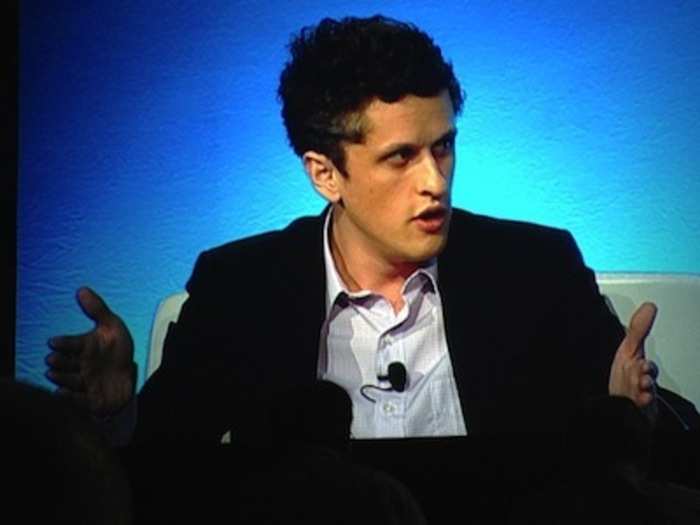
Aaron Levie, co-founder and CEO, Box.
Levie built one of the hottest enterprise startups in the Valley. He turned an ordinary file sharing idea into the next big collaboration thing that big companies love. His company is now valued at over $1 billion and Levie has become one of the Valley's most watched CEOs.
Salesforce.com's Marc Benioff: Pied Piper of cloud.
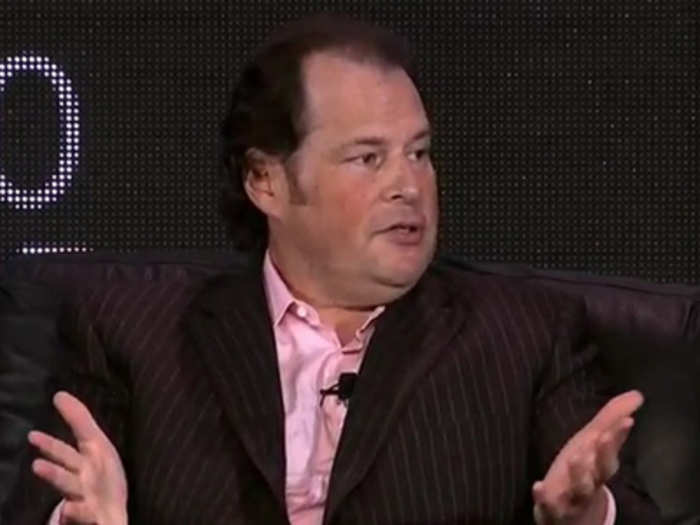
Marc Benioff, chairman and CEO of Salesforce.com.
Benioff is a big personality with a big vision for what the next generation of enterprise tech will be. He taught the world what software-as-a-service cloud computing was all about.
Now he's spending big bucks acquiring companies for his next big vision: the IT bought by chief marketing officers. He just orchestrated Salesforce's biggest acquisition ever: $2.5 billion for ExactTarget.
Pivotal's Paul Maritz: Taking on a new challenge for EMC.
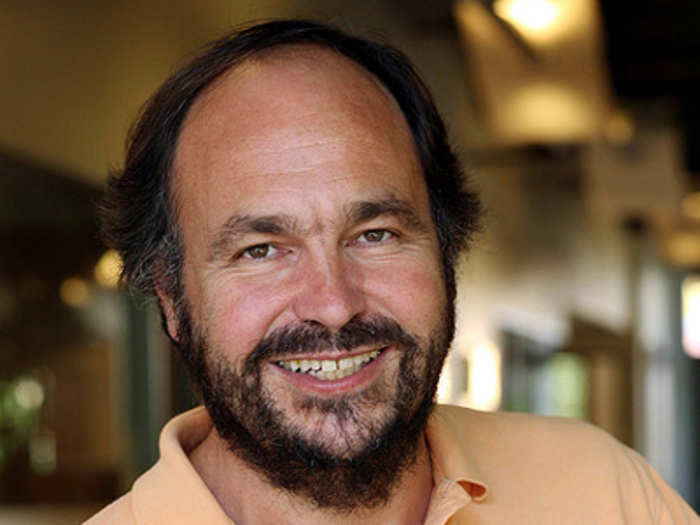
Paul Maritz, CEO, Pivotal.
After successfully making VMware into one of the biggest, most important enterprise software companies, Maritz has taken on a new challenge for VMware's parent company, EMC: to create a cloud computing/big data spinoff.
He's now the CEO of Pivotal. In geek speak it is a "platform-as-a-service" for building big data apps. In simpler terms, it intersects two big trends: cloud computing and big data, meaning it will let app developers write the type of apps that use lots data and will then host those apps.
Workday's Aneel Bhusri: Remaking enterprise software.
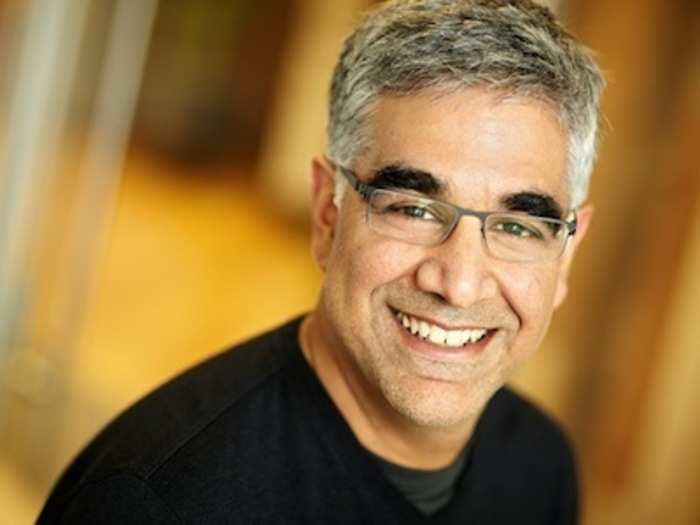
Aneel Bhusri, co-founder and co-CEO of Workday and a partner, Greylock Partners.
Bhusri is the second-half of the dream team who co-founded Workday. He was an executive with Duffield back at Peoplesoft, staying through the onslaught of Peoplesoft's hostile takeover by Oracle.
In addition to Workday, he's helped to fund a whole crop of other hot enterprise cloud startups including Okta, Cloudera, ServiceNow, and Zuora.
Nicira's Martin Casado: Disrupting the network industry.
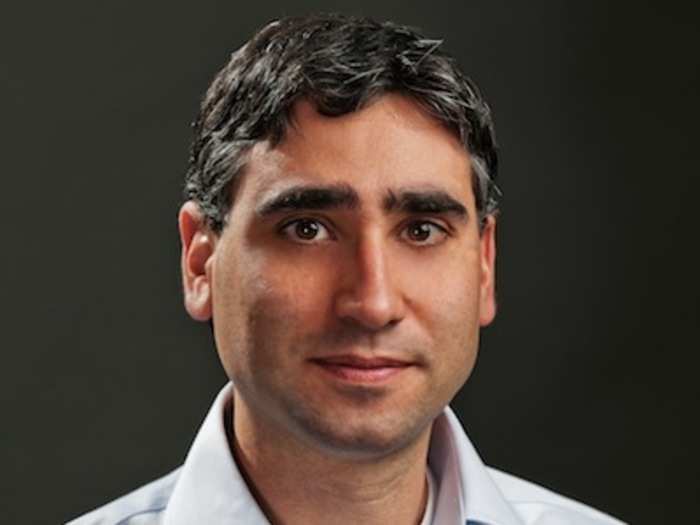
Martin Casado, co-founder and CTO of Nicira.
Casado has rocked the enterprise tech world with a tech he created while he was a grad student at Stanford. It's called OpenFlow and it does for networks what VMware does for servers. A year ago VMware snapped up his startup, and him, for a shocking $1.26 billion. Cisco has been put on notice that Casado's tech is coming and could upend the networking giant.
Everyone in the enterprise tech industry is watching Casado.
Microsoft's Satya Nadella: Taking Microsoft into the cloud.
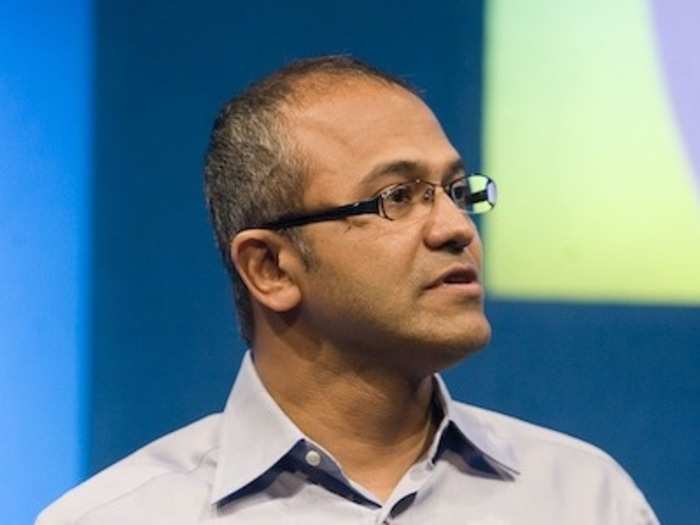
Satya Nadella, President, Server and Tools Business, Microsoft.
Nadella's star and power keeps on rising. First, CEO Steve Ballmer handed him the critical Server and Tools Business in 2011, replacing longtime Microsoft vet Bob Muglia, who left the company. He's also leading Microsoft's Amazon-killer cloud. And he's expected to get an even bigger role in Ballmer's new plans to reorganize the company.
Amazon's Werner Vogels: Call Him Mr. Cloud.
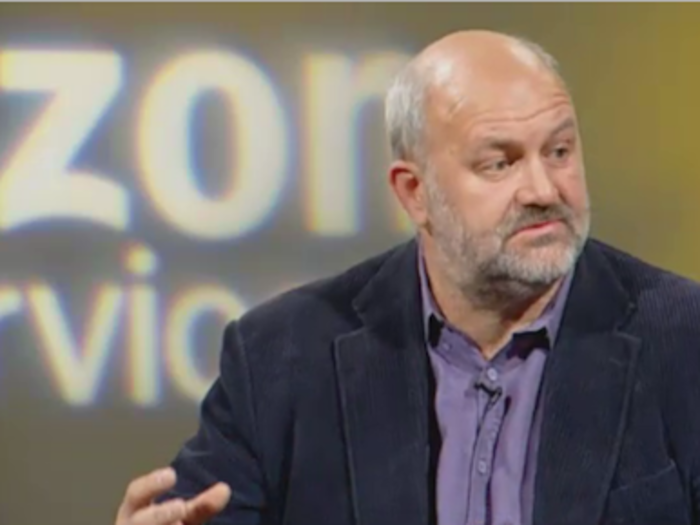
Dr. Werner Vogels, CTO, Amazon.com.
Vogels will forever be known as the IT visionary who helped Amazon create its game-changing cloud computing service. Although he didn't build Amazon's first-generation cloud, he's known as the architect of Amazon's strategy. In 2013, under Vogel's eye, Amazon is gearing up to storm the enterprise as companies spend billions of dollars on cloud services.
Cloudera's Amr Awadallah: Bringing Big Data to the masses.
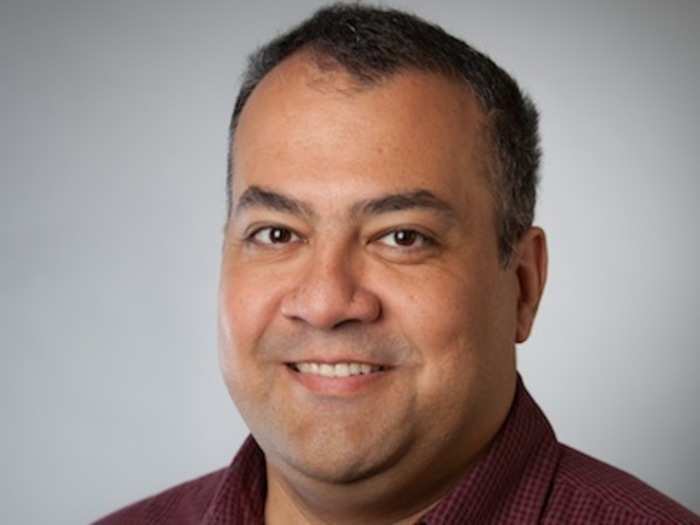
Amr Awadallah, co-founder and CTO, Cloudera.
When it comes to new technologies taking the enterprise by storm, none is bigger than big data. When it comes to naming the most established big data startup, Cloudera is at the top of the list. Cloudera offers a popular big data tech called Hadoop. It has also raised the most venture funds among big data startups with $141 million to date.
With such visibility Amr Awadallah — who hails from Hadoop's birthplace, Yahoo — has become a sought-after speaker at big data conferences.
SAP's Hasso Plattner: Remodeling a software giant.
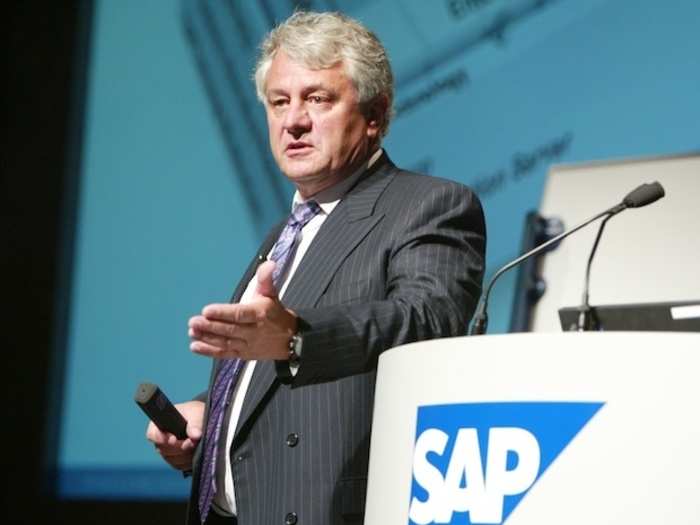
Hasso Plattner, cofounder, chairman, SAP.
Billionaire Hasso Plattner has dragged his enterprise software giant SAP into the brave new world of big data, mobile, and cloud computing, with huge acquisitions like SuccessFactors ($3.4 billion); Ariba ($4.3 billion), a hot database product called HANA, and a bunch of mobile tools.
He's now teaching the next generation about enterprise software. He was a major backer of the Institute of Design at Stanford and he created the Hasso Plattner Institute at the University of Potsdam in Berlin.
Citrix's Mark Templeton: The king of the post-PC era.
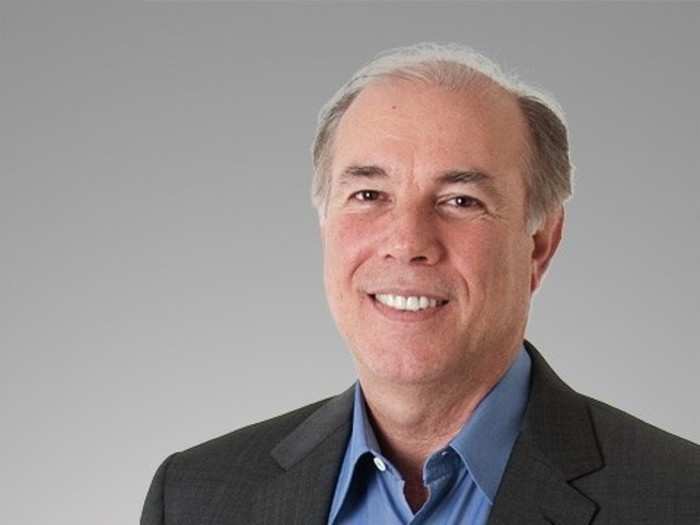
Mark Templeton, CEO, Citrix.
Templeton has been CEO since 2001 and in that time has masterfully guided Citrix from one new market opportunity to another. Today it is one of three big contenders duking it out for a share of the soon-to-be-huge cloud computing market. It makes the underlying technology for clouds and competes with VMware and a consortium known as OpenStack.
Red Hat's Jim Whitehurst: Turning free software into a billion-dollar business.
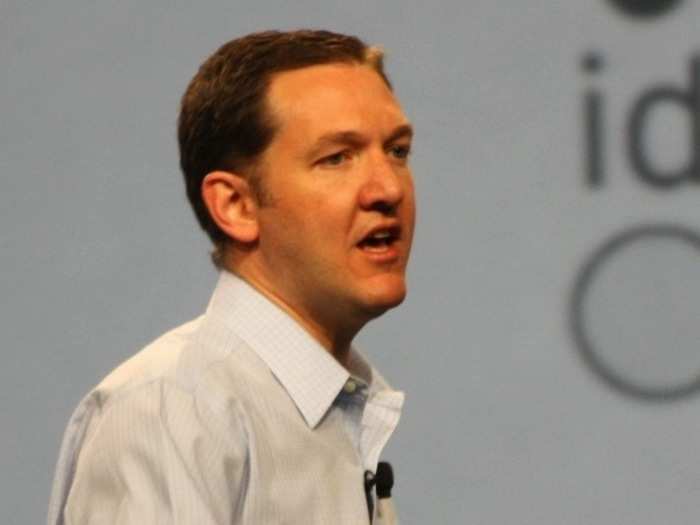
Jim Whitehurst, CEO, Red Hat.
Whitehurst is the down-t0-earth CEO turning Red Hat into the next big enterprise software powerhouse. First he led Red Hat to be the first and only billion-dollar pure open-source company. Now he's on a mission to turn Red Hat into a $3 billion company and move it far beyond its roots as a supplier of the Linux operating system and into the cloud.
VMware's Pat Gelsinger: Taking them into the cloud and beyond.
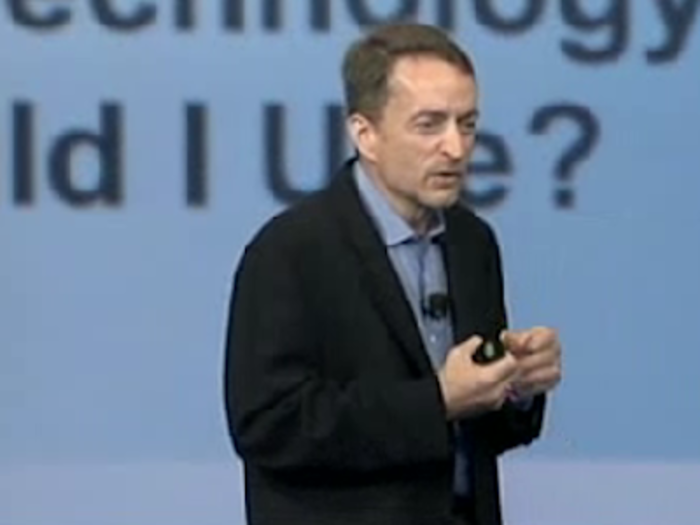
Pat Gelsinger, CEO, VMware.
Last September, EMC had two of its top executives get up and change chairs. Gelsinger was formerly EMC's COO running its most important tech unit. He changed seats with Paul Maritz who was VMware's CEO.
Gelsinger is tasked with taking VMware into a brand new era of computing. VMware wants to dominate cloud computing and a new technology called software-defined networking. SDN has the potential to completely change the way companies build their networks and VMware could swallow the lion's share of billions in new revenue that SDN is certain to create.
Google's Amit Singh: Luring enterprises to Google.
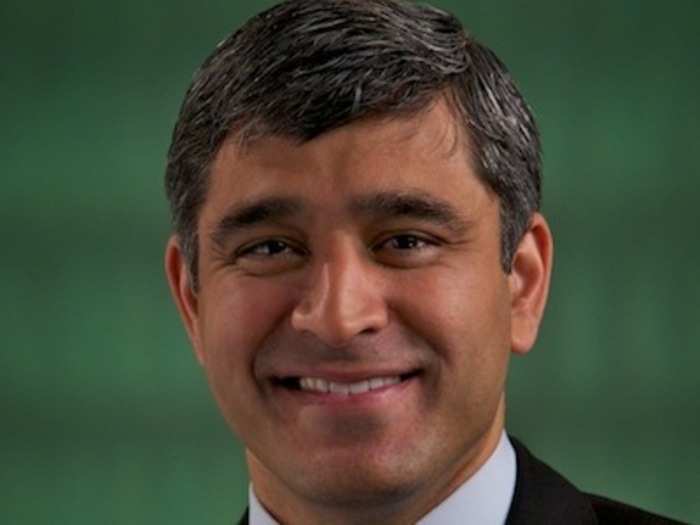
Amit Singh, VP Enterprise, Google.
Google wants a piece of the enterprise pie with its Google Apps, it's various cloud computing services and its Google Chrome operating system. It is Singh's job to reel in customers. Google snared Singh from Oracle, so he knows the enterprise software sales drill. His goal is nothing short of domination. He wants to grab 90% of Office users away from Microsoft.
IBM's Virginia Rometty: Navigating IBM through a rough patch.
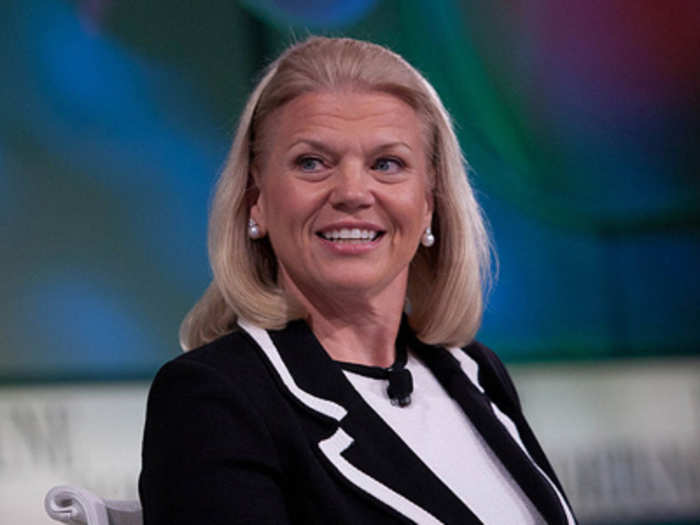
Virginia Rometty, president, CEO, IBM.
"Ginni" Rometty has blossomed into her relatively new role as the CEO of the nation's most venerable enterprise IT company. In less than a year's time, she managed to pry her predecessor Sam Palmisano's grip off of the company, becoming CEO in January 2012, and then taking his chairman title, too.
But she has her work cut out for her. She presided over the worst quarter the company had in years, and instituted a reported big layoff. She is also struggling to bring aging IBM businesses up to snuff and still meet Palmisano's ambitious promise to investors of hitting $20 earnings per share in 2015.
Cisco's Rob Lloyd: CEO-in-waiting.
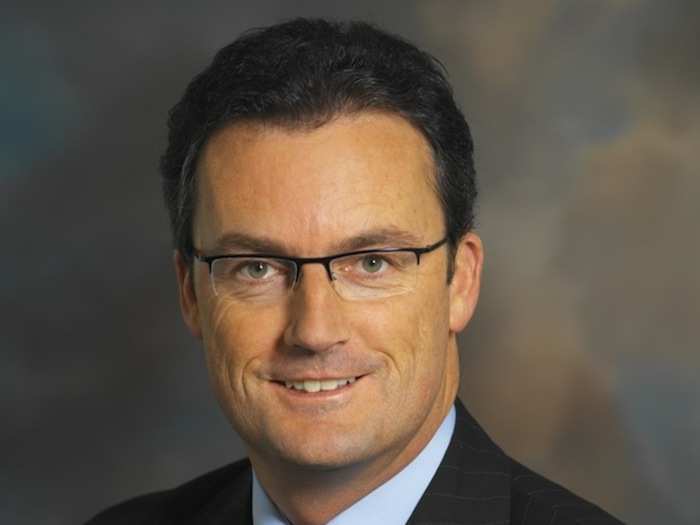
Rob Lloyd, president of development and sales, Cisco.
Suddenly Rob Lloyd is everywhere. He's the front-runner to become Cisco's next CEO, assuming that John Chambers actually retires in 3-4 years as he suggested he might. Lately, Cisco has been showcasing this 18-year Cisco veteran at keynote speeches, press conferences, and other tech events.
Andreessen Horowitz's Marc Andreessen: A massive web of power.
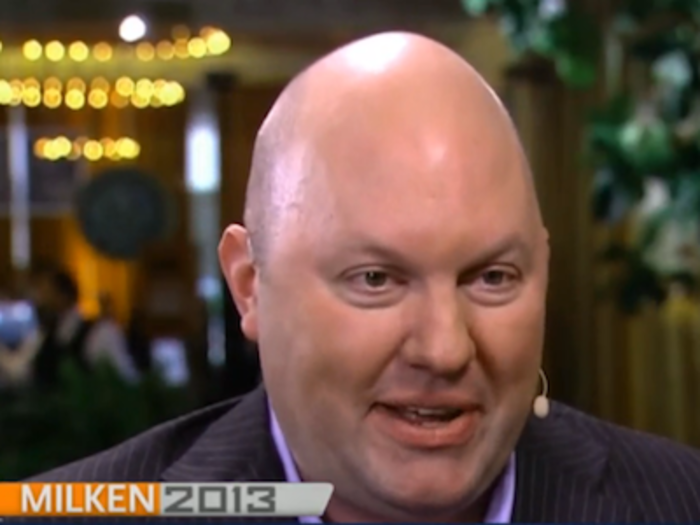
Marc Andreessen, co-founder Andreessen Horowitz.
Andreessen is one of the tech industry's true visionaries, particularly with enterprise tech. His venture firm, co-founded with Ben Horowitz, is a big player in enterprise. It backs Box, Asana, ClearStory, and Okta among others. Andreessen is also on the boards of Hewlett-Packard, Facebook, and eBay.
NetSuite's Zach Nelson: A SaaS leader.
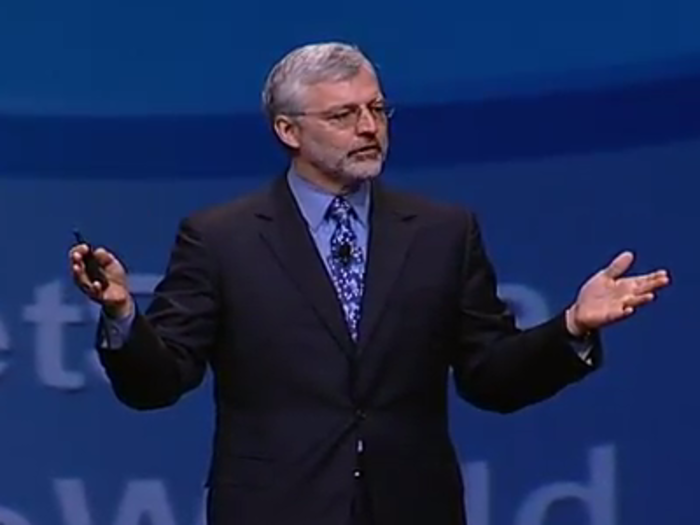
Zach Nelson, CEO, NetSuite.
NetSuite was founded in 1998, the brainchild (at least in part) of Oracle CEO Larry Ellison, before people understood cloud computing or software as a service. Nelson has been its CEO for most that time (since 2002). He's walking a fine line now between Ellison's other company, Oracle, which has recently launched into the cloud, and Oracle's biggest competitor, SAP. Nelson is helping mid-sized companies use the cloud.
He's making progress, too. NetSuite logged a record $308.8 million in revenue for 2012.
HP's Meg Whitman: Slowly transforming HP.
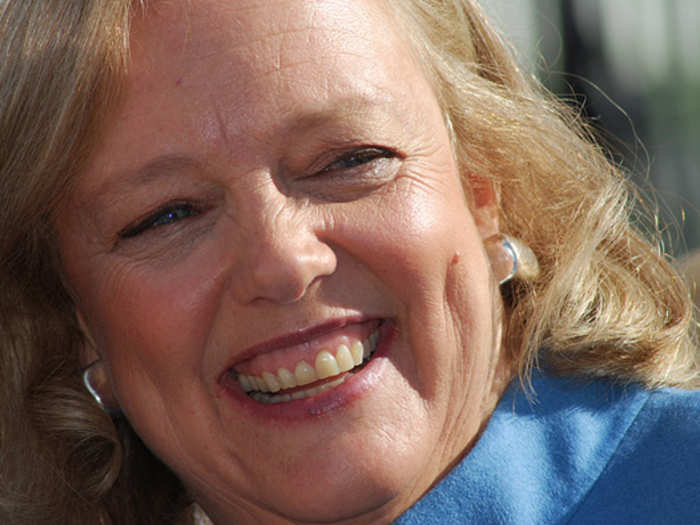
Meg Whitman, CEO, HP.
HP is about 18 months through a five-year turnaround. Or so Whitman tells investors and the media every chance she gets. She's been tasked with getting HP past its self-made troubles and growing again. Her first year was rocky: big layoffs, big write-offs, a near-revolt of shareholders over the botched $11 billion acquisition of Autonomy.
But she is slowly winning over investors, customers, employees. Next up: She has to deliver real revenue growth, and soon. Powerful people, like board member Marc Andreessen, are convinced she will.
SAP's Bill McDermott: Born to be a CEO.
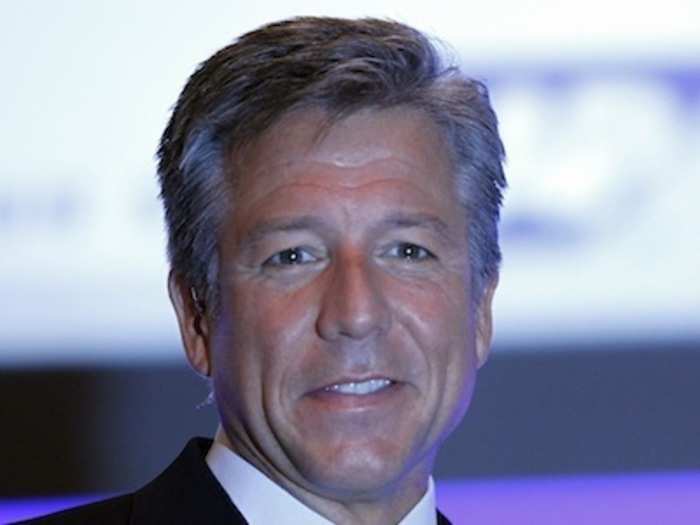
Bill McDermott, co-CEO, SAP.
McDermott was born to be a CEO. The native New Yorker bought his first company at the age of 16 (a delicatessen on Long Island). He's been co-CEO of SAP AG since February 7, 2010 — the U.S. partner to his Danish-born counterpart, co-CEO Jim Hagemann Snabe.
McDermot is SAP's strategy and sales guru. He's fending off countless upstarts trying to break SAP's steady hold on the financial software market.
Fusion-io's Steve Wozniak: Perennial importance.
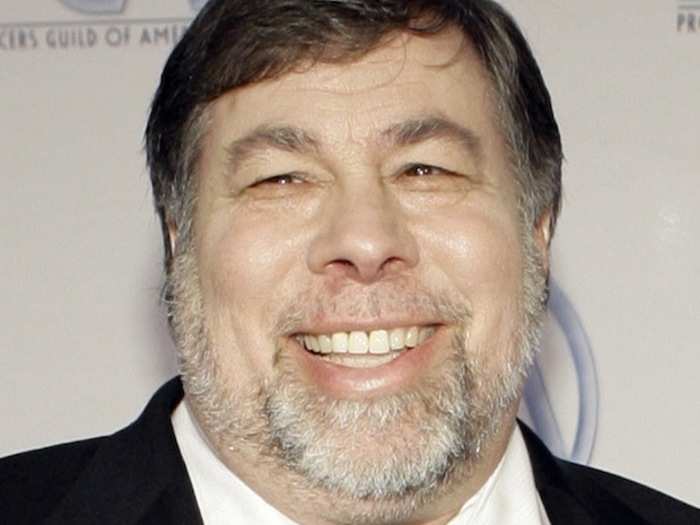
Steve Wozniak, chief scientist, Fusion-io.
Woz will forever be powerful and important in the tech world as the respected co-founder of Apple. He currently works for Fusion-io, an enterprise storage company that went public in 2011. Fusion-io is the poster child for a new kind of storage for enterprises that use flash tech, the same kind of storage in smartphones and thumb drives.
His company really needs Woz's star power now. It underwent a huge management shakeup where the founders were ousted and the new CEO is a man from HP involved in some of HP's rockiest moments.
ARM's Simon Segars: Big shoes to fill.
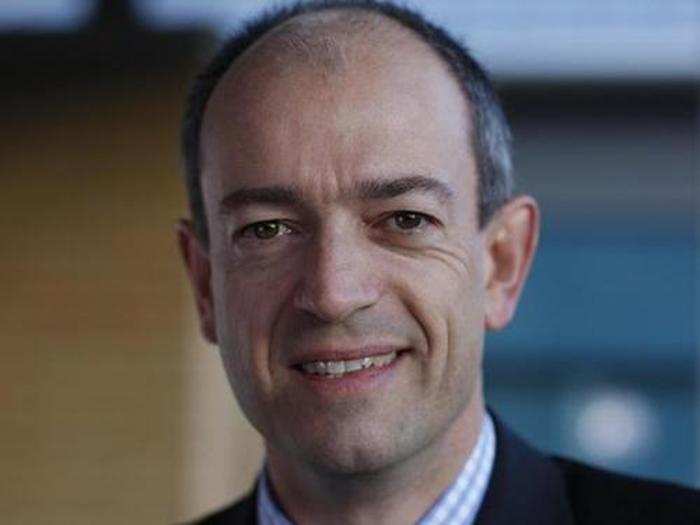
Simon Segars, CEO, ARM Holdings.
After 22 years at the company, Simon Segars will become CEO of ARM Holdings in July, taking over for Warren East who turned ARM into an industry game-changer. So Segars has big shoes to fill. Low-power chips designed by ARM, and produced by many, have helped spawn the powerful mobile devices that are killing PCs.
Next up for Segars is to bring ARM into data center servers, making data centers vastly more powerful while using a fraction of the space and energy. Several companies, including HP, are working with ARM on this.
Juniper's Kevin Johnson: Betting big that software is eating his world.
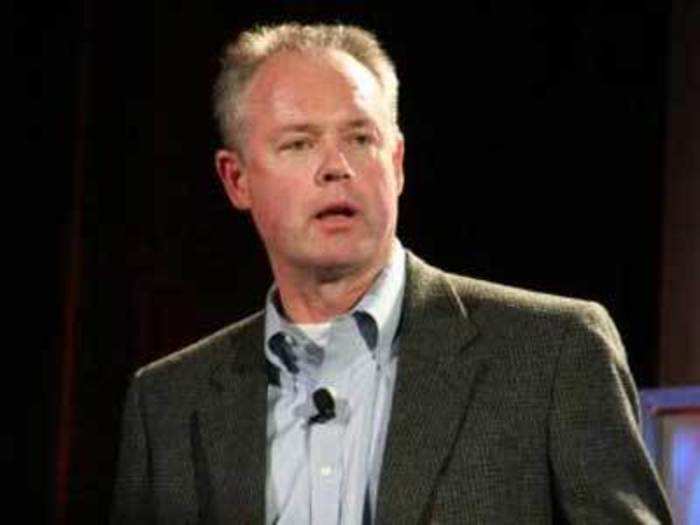
Kevin Johnson, CEO, Juniper Networks.
Juniper Networks' claim to fame is to give Cisco a hard time. It's a big rival in the network equipment industry and a big player with computer security, too. Johnson joined as CEO in 2008, after a long time spent running the Windows sales organization at Microsoft.
Johnson is ready to push his company into the brave new world of software-defined networking. He bought startup Contrail Systems for $176 million just two days after it came out of stealth. This whipped up excitement and venture investment in the young tech.
Johnson is also a director for Starbucks.
Sequoia's Jim Goetz: Enterprise money man.
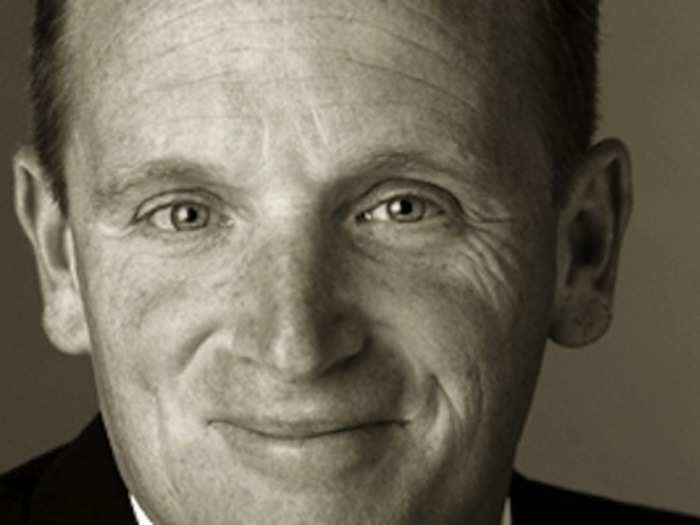
Jim Goetz, partner, Sequoia.
Goetz is an enterprise-funding powerhouse. Just look at all these boards he's on: Appirio, Barracuda Networks, Clearwell Systems, eMeter, Flite, Jive Software, MetaSwitch, Nimble Storage, Palo Alto Networks, Pocket Gems, and Sencha.
He made news last year when he encouraged more startups to think about building companies that serve the enterprise instead of serving the consumer.
Accel's Ping Li: Big data's funding guru.
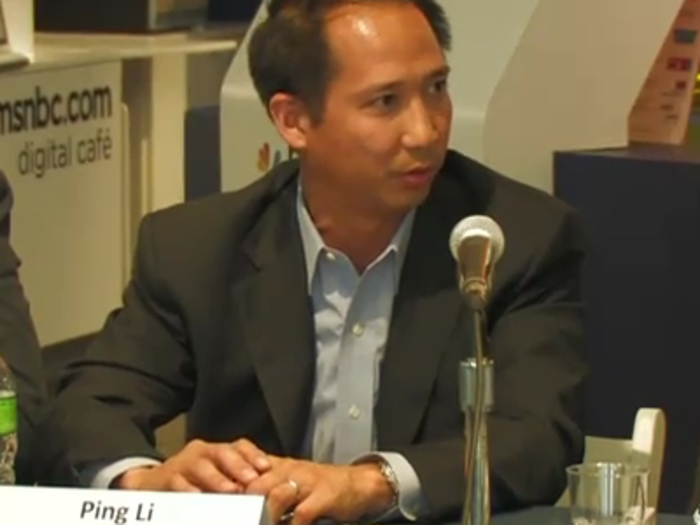
Ping Li, partner, Accel Partners.
Li is one of those Valley people whom everyone-who's-anyone knows. He's big into funding cloud and big data startups and led Accel into creating a $100 million Big Data Fund, bringing in advisors from Facebook, Standford, and Bit.ly to help him run it. His investments include BitTorrent, Blue Jeans Network, Cloudera, and others.
Adobe Systems' CEO, Shantanu Narayen: Everyone is watching his move to the cloud.
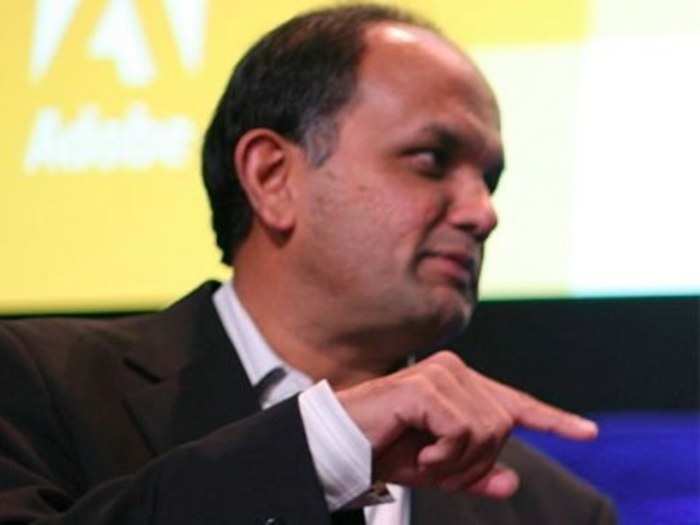
Shantanu Narayen, CEO, Adobe Systems.
Narayen has been CEO of Adobe since 2007, expanding Adobe beyond its roots as a graphics software maker into areas as diverse as web metrics and social marketing.
He's not afraid to be experimental and earlier this year took the brave step of radically changing the way the company charges for software, adopting a 100% cloud subscription model. There's been customer push-back, and the whole software industry is watching to see how Narayen navigates through it.
Oracle's Mark Hurd: The execution man.
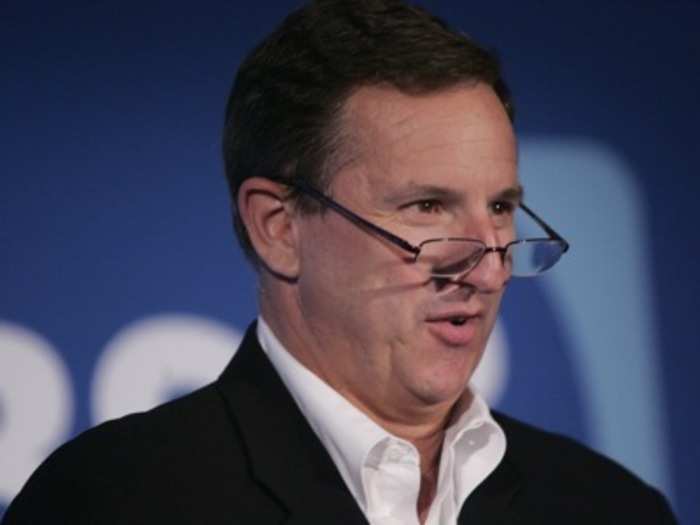
Mark Hurd, co-president, Oracle.
Hurd's boss, Larry Ellison, has a vision for Oracle's next decade. He wants Oracle to be the Apple of the enterprise, meaning a one-stop shop for software and hardware. It's Hurd's job to execute on the vision. He's been retooling Oracle's salesforce to handle the brave new world of hardware sales.
His name has also been on the shortlist to become the next CEO of Dell should activist investor Carl Icahn's bid to take over Dell prevail (though Hurd says he has no interest in that job).
CA Technologies' Mike Gregoire: Taking a huge legacy software company into a new age.
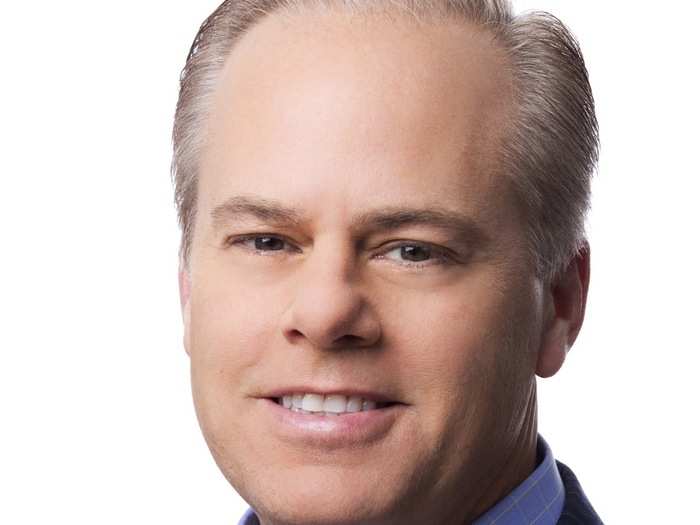
Mike Gregoire, CEO, CA Technologies.
Mike Gregoire joined CA Technologies as CEO in January. He had been in retirement after selling his former company, Taleo, to Oracle in 2012 for $1.9 billion. CA is a huge and interesting challenge for Gregoire. Like other aging enterprise software companies, it needs to figure out how to shake off its dusty image and make itself relevant for the next generation of data centers.
Gregoire has his eye on security software for the "Internet of Things" and new forms of network management managing software that work well in the cloud, he told us.
Amazon's Andrew Jassy: Controlling a huge portion of the cloud.
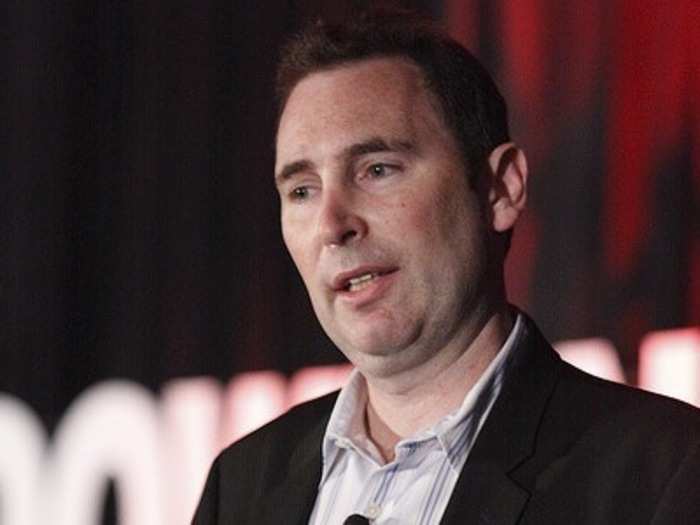
Andrew Jassy, Senior Vice President, Amazon Web Services.
If Werner Vogels is AWS's visionary, Jassy is the execution guy. He runs Amazon's cloud, including its two biggest services: renting computers and renting storage space. Amazon is poised to make its cloud a bigger deal to the enterprise, even potentially snagging a huge contract with the CIA.
Jassy previously helped Amazon get into the digital music market, too.
NetApp's Tom Georgens: Kicking at EMC's big shins.
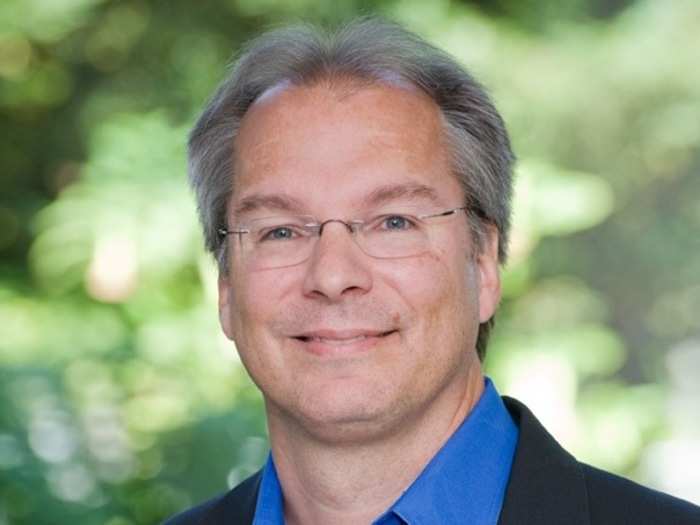
Tom Georgens, CEO, NetApp.
In the storage industry NetApp has become the Pepsi to EMC's Coke, albeit NetApp is far smaller than EMC. Georgens has been CEO since 2009. He studied at EMC's knee, spending 11 years in engineering before becoming CEO of LSI Logic's storage unit Engenio until NetApp bought Engenio for $480 million in 2011.
Under Georgens, NetApp has grown revenue from about $4 billion in 2010 to over $6 billion in 2012.
Apple's Francois Daumard: Bringing them into the enterprise.
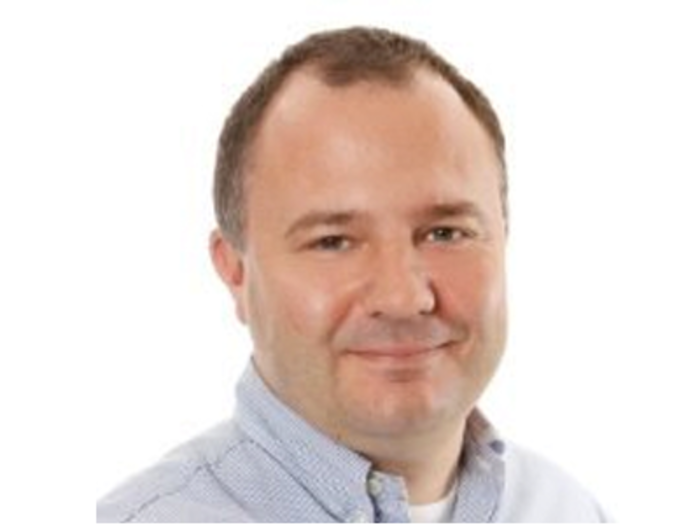
Francois Daumard, Mobility Channel Development, Apple.
In mid-2011, Daumard jumped ship from Microsoft to join Apple. He was charged with helping Apple build relationships with resellers who wanted to sell its iPhones and iPads to businesses and use them in other ways, such as with custom apps. Apple had almost no relationship with resellers before he arrived. And his progress since then has been nothing less than stellar.
Apple devices, particularly the iPad, are storming the enterprise these days.
Tableau Software's Pat Hanrahan: Making big data easier to look at.
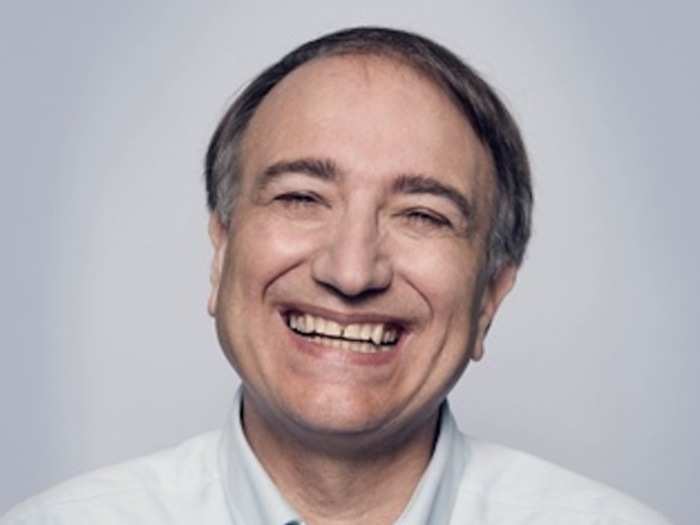
Pat Hanrahan: co-founder, Chief Scientist, Tableau Software and Stanford professor.
Hanrahan is one of the biggest names in big data. The company he helped found, Tableau, which creates charts/graphs from large volumes of data and, just had a spectacular IPO. He's also a Canon professor of computer science and electrical engineering at Stanford and an advisor to a other big data startups, like Skytree.
And he helped Pixar studios create its award-winning rendering tech, earning two Oscars along the way.
Facebook's Frank Frankovsky: Democratizing the hardware industry.
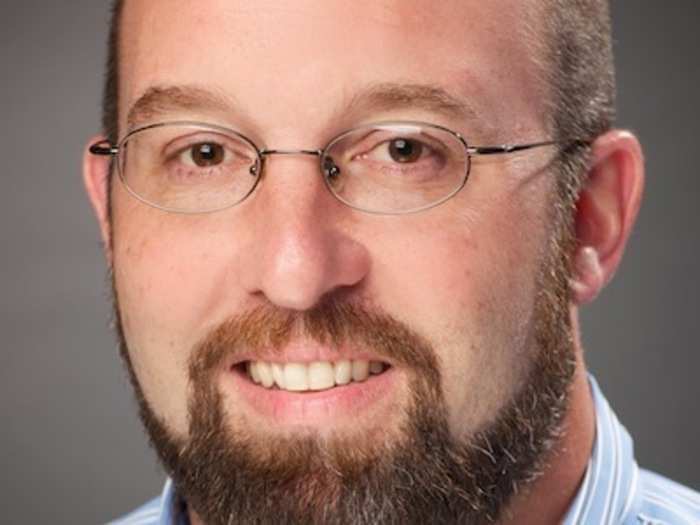
Frank Frankovsky, Vice President, Hardware Design and Supply Chain Operations at Facebook.
Facebook is the world's largest social network. It takes enormous amounts of computing power to let people worldwide share photos, chat and post their thoughts. Frankovsky leads a consortium that is slowly changing the way computer hardware is built, putting designs into the hands of the users (like Facebook) instead of the vendors (like Dell or HP).
He wants his organization to do for hardware what Linus Torvalds and Linux did for software, and he's having a lot of success.
F5 Networks' John McAdam: Quietly taking on Cisco.
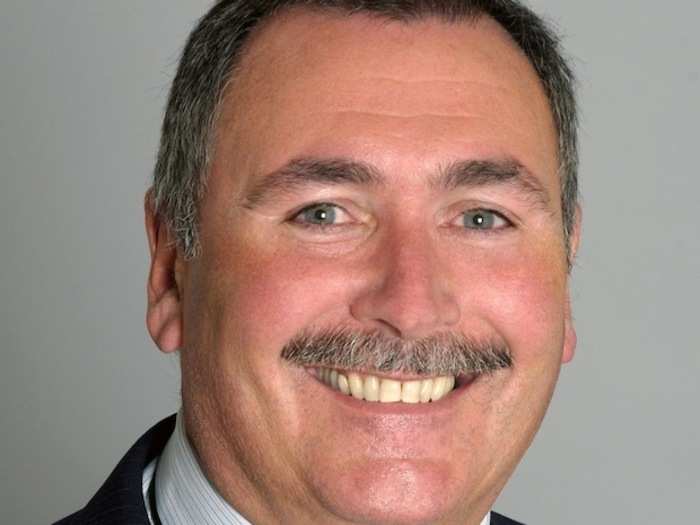
John McAdam, CEO, F5 Networks.
John McAdam became CEO of network equipment company F5 Networks in July 2000 right before the Internet bubble burst. After that it looked like F5 was not long for this world. But he dug in and grew the company's revenue from $108.6 million to more than $1 billion. Today F5's stock trades for about $75 with a market cap of nearly $6 billion which has allowed it to go shopping, including snapping up SDN startup LineRate in February.
IBM's Bridget Van Kralingen: A growing star.
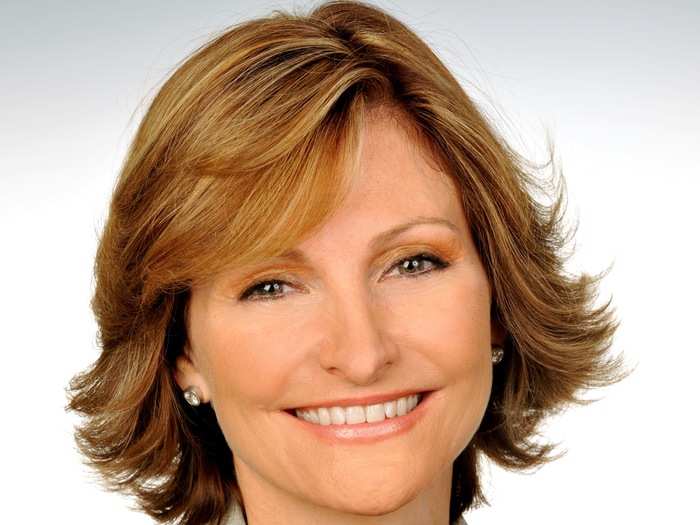
Bridget Van Kralingen, SVP, IBM Global Business Services.
Bridget Van Kralingen is part of CEO Ginni Rometty's brain trust. Shortly after Rometty took over, the man who almost got the CEO job instead, Michael Daniels, retired. He had been running IBM's huge services division. Rometty replaced him with two executives: Van Kralingen and Erich Clementi. Rometty just gave Clementi a new job. He's off to build IBM's new cloud division, leaving Van Kralingen to run this $40.2 billion division that employs more than 100,000 people.
HP's Bethany Mayer: Leading one of the shining spots in the company.
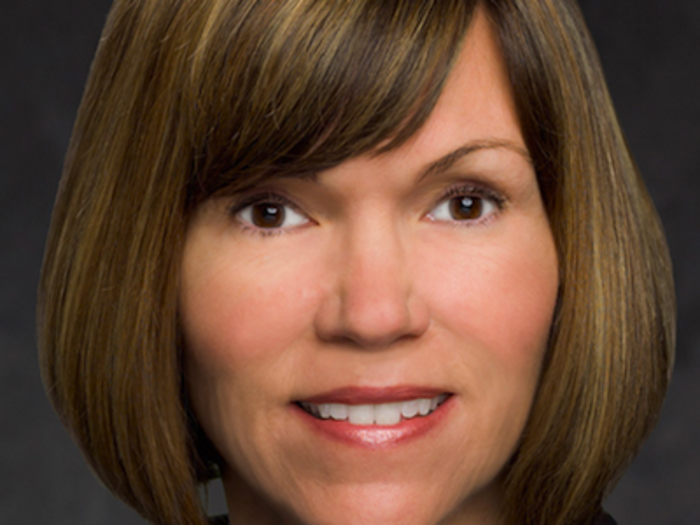
Bethany Mayer, Senior Vice President and General Manager, Networking, HP.
Among HP's rather bleak financials, where revenues in nearly every business unit are shrinking, the networking unit stands out for growing a tiny bit, 1%, mostly by stealing share away from rival Cisco. Mayer gets the credit. Under her, HP was one of the earliest big players to jump on the software-defined networking market that promises to radically alter the way companies build networks.
Intel's Diane Bryant: Finding new growth.

Diane Bryant, general manager Data Center and Connected Systems Group, Intel.
Intel is struggling to redefine itself in a post-PC world, where so many devices run on low-power chips from competitor ARM Holdings.
Diane Bryant runs one of the units in Intel's stronghold, the chips that run nine of every 10 servers sold worldwide, generating more than $10 billion in revenue in 2012. These chips will also power next-generation enterprise and cloud servers as well as storage and networks.
NEA's Scott Sandell: An eye for the next big enterprise startup.
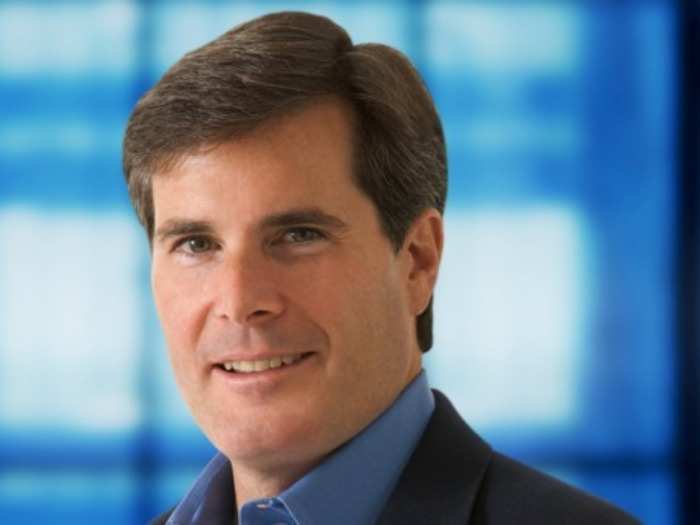
Scott Sandell, General Partner, NEA.
Before becoming a VC, Scott Sandell worked at Microsoft, helping to create Microsoft's popular PC operating system, Windows 95. Since he's become a VC, he's shown up at the center of many of the enterprise industry's biggest deals. He was an early investor in Workday, 2012's biggest enterprise IPO. He also backed Nicira, (bought by VMware for $1.26 billion), Fusion-io (2011 IPO), and Tableau Software (2013 IPO).
His current startup roster includes CloudFlare, Blue Jeans Network, BloomReach, and MuleSoft.
Palo Alto Networks' Nir Zuk: constantly revamping the security industry.
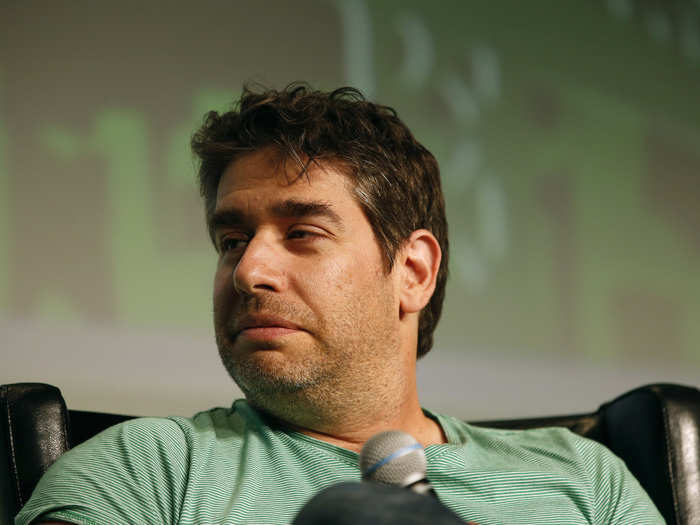
Nir Zuk, cofounder, CTO Palo Alto Networks.
Success follows Nir Zuk around. Palo Alto Networks was one of the hot enterprise IPOs in 2012.
In his early days at Check Point Software, Nir actually helped invent the firewall industry that Palo Alto Networks disrupts. Nir was also CTO at firewall-maker NetScreen Technologies, acquired by Juniper Networks in 2004 for $4 billion. He co-founded another security company before that, OneSecurePrior.
Yahoo's Maynard Webb: His fingers are in everything.
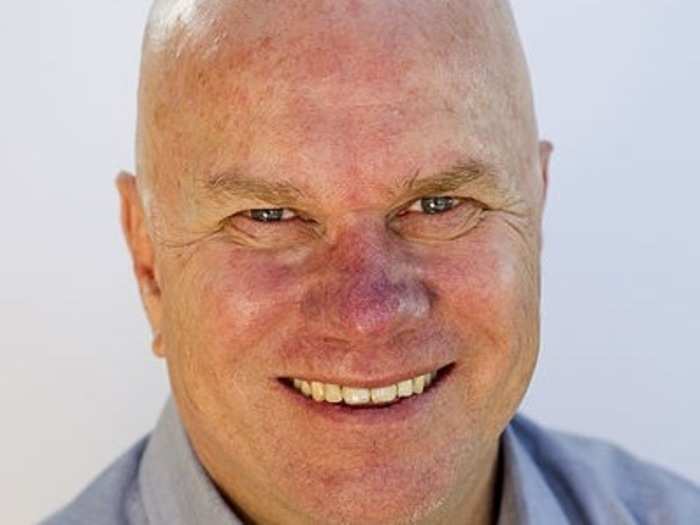
Maynard Webb, chairman of LiveOps, interim chairman of Yahoo, venture capitalist.
Maynard Webb has a long and storied career and he still seems to be everywhere these days.
He is the former CEO and current chairman of the board at cloud contact center firm LiveOps, a board member at Salesforce.com, the interim chairman of Yahoo and a well-known Angel investor. Some call him a super angel. He's also credited with helping eBay become a multi-billion company under his mentor, Meg Whitman.
As an investor, some of his successes include Peribit (acquired by Juniper Networks) and AdMob (acquired by Google). Through his Webb Investment network fund, he's backed such companies as Badgville, Diffbot, Nebula, and Okta.
Red Hat's Russell Bryant: Overseeing a crucial cloud tech.
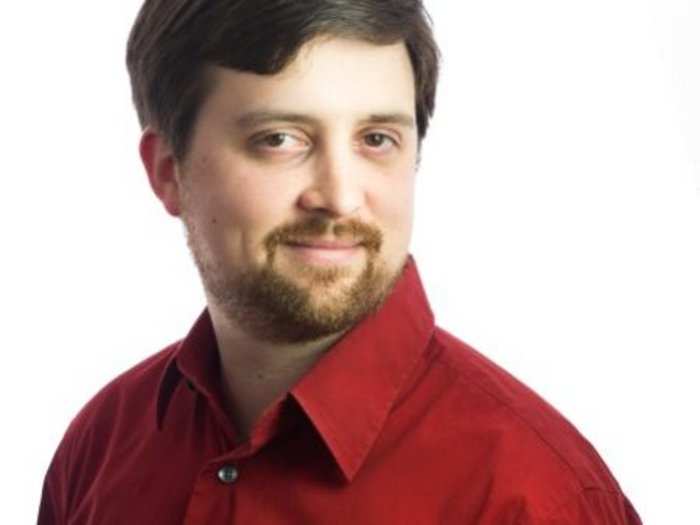
Russell Bryant, Principal Software Engineer at Red Hat.
Bryant is a member of the OpenStack Technical Committee and the leader of the OpenStack Compute project, an elected position within the OpenStack Foundation. OpenStack is a free and open-source cloud operating system that competes with Amazon and VMware.
Big companies like Red Hat, IBM and HP have banked their futures on it and the stakes are huge. The public cloud market will generate $131 billion this year alone, Gartner says. Much of that rests on the shoulders of Bryant and his committees.
Linux Foundation's Greg Kroah-Hartman: The Knight of Linux
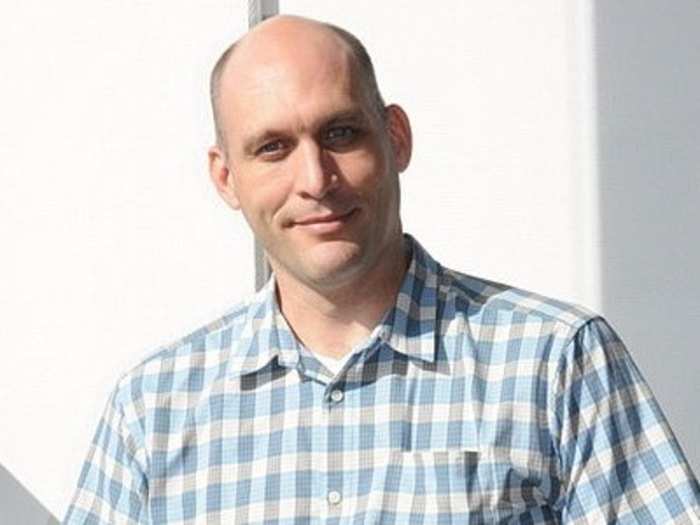
Greg Kroah-Hartman, Fellow, Linux Foundation.
Greg Kroah-Hartman is one of most powerful people in the world of Linux, second only to his buddy Linus Torvalds, it's creator. It's Kroah-Hartman's job to maintain what's known as the "stable" branch of Linux, that's the one deployed in data centers around the world.
Before working full time for the Linux Foundation, he worked on Novell's version of Linux, known as SUSE.
Like Torvalds, Kroah-Hartman has his share of fans and groupies — young open source developers who want to grow up to be just like him. He's an author and popular public speaker, too.
GoodData's Roman Stanek: Big Data's good bet.
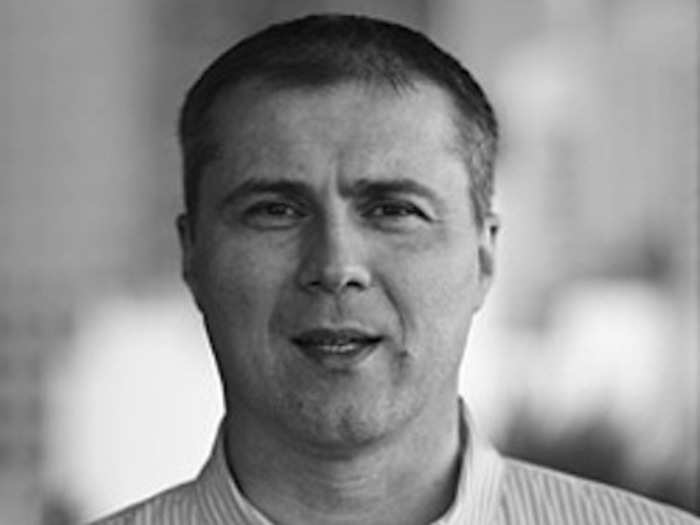
Roman Stanek, founder and CEO, GoodData.
One of the hottest big-data startups is Roman Stanek's GoodData. In 2012 it increased revenue five-fold, and closed 40 six-figure deals. It now boasts 8,000 clients, including GE, Pandora, and Time Warner Cable. GoodData's investors include Andreessen Horowitz and famed technology analyst/conference organizer Esther Dyson. It's raised over $75 million from investors to date.
Stanek is a good bet. He's started more than five companies and is best known for founding NetBeans, sold to Sun Microsystems in 1999, and Systinet, sold to Mercury Interactive in 2006 for $105 million.
Now look at the most powerful enterprise investors ...
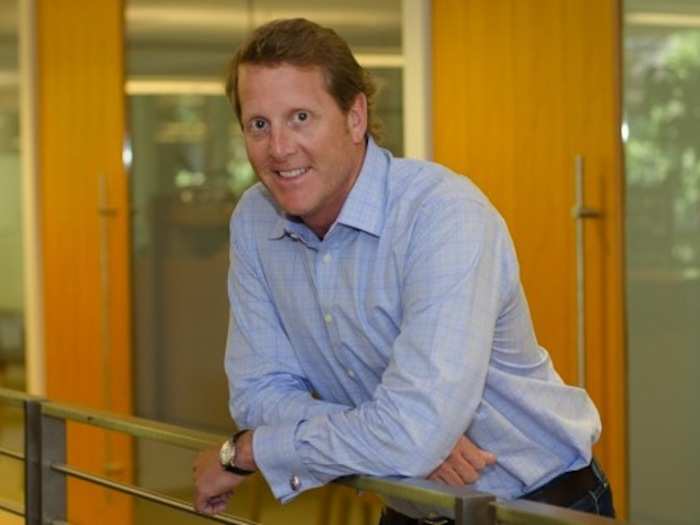
Popular Right Now
Popular Keywords
Advertisement